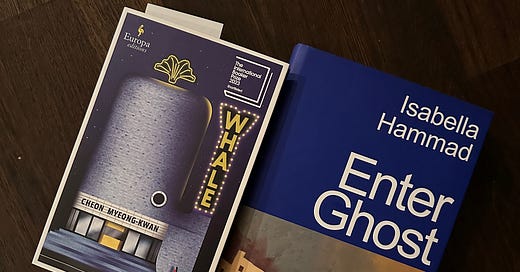This is a doubled newsletter update of a kind. I entered an impossible crunch, caught between marking up student work which is deadline sensitive and must be done and a family visit. But now here I am. Apologies for the delay.
Keep reading with a 7-day free trial
Subscribe to The Querent to keep reading this post and get 7 days of free access to the full post archives.



